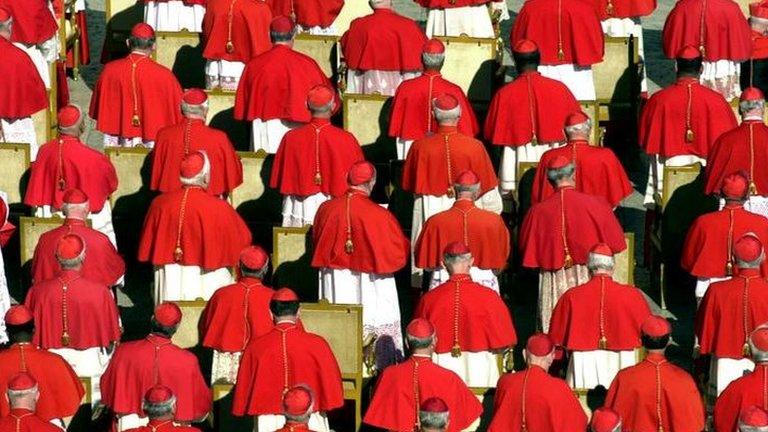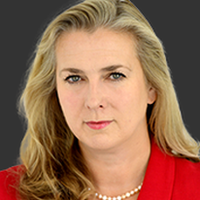Synod on family could help define Francis's Papacy
- Published
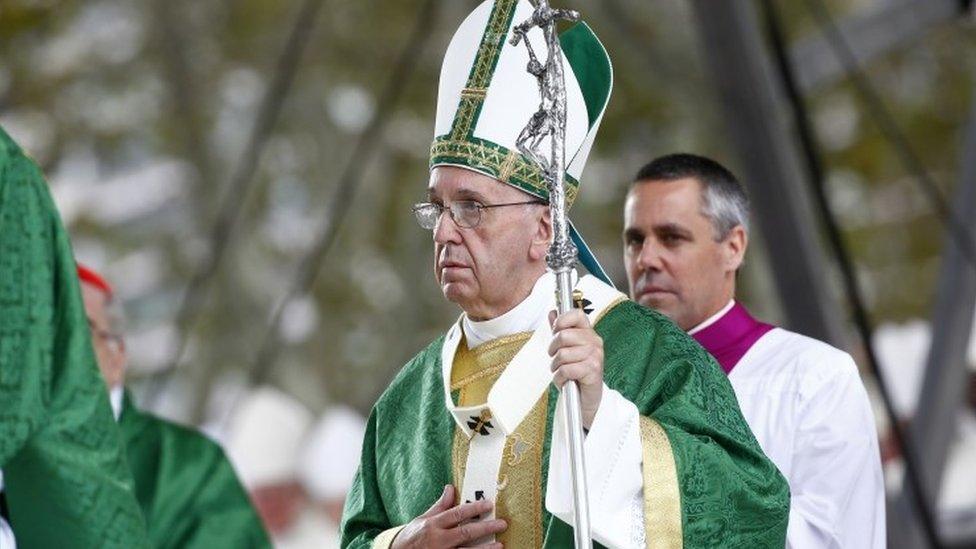
Pope Francis has had a huge impact since taking over the Papacy
This Sunday will see the start of a Synod of Bishops in Rome, external that could become one of the defining moments for the Papacy of Pope Francis, just six days after he landed back in Italy from his nine-day trip to Cuba and the US.
The diplomatic complexities that he navigated on that journey may come to seem relatively simple compared with the journey that awaits for representatives of the world's 1.2bn Roman Catholics at the Synod on the Family.
It starts on 4 October and ends on 25 October, following on from last year's Extraordinary Synod, external.
It has been hailed as a key test of this Papacy, and of the Pontiff's own authority and direction for the Church.
The meeting will involve 279 bishops from more than 120 nations, as well as 17 married couples and 17 auditors, as well as other non-voting representative.
Intense lobbying
Ahead of it, Roman Catholic traditionalists and reformers have been lobbying: releasing books, petitions, interviews and articles seeking to outline their positions.
Gay Catholics, female theologians and churches in Africa opposed to homosexuality have all sought to communicate their differing hopes.
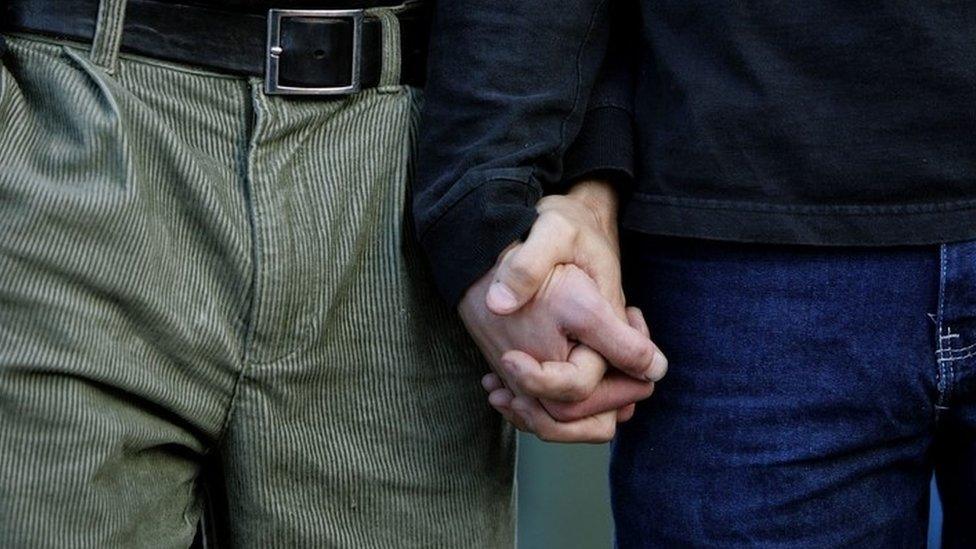
Might the church adopt a more liberal attitude on same-sex relationships?
An interim document during last year's Synod had led some to believe that the Vatican might ultimately agree a more liberal approach towards homosexuality and perhaps the taking of Holy Communion by remarried divorcees who had not first been granted an annulment.
The hopes of gay Catholics and their families were also raised by Pope Francis's own words in 2013 in response to a question about a gay priest.
"If a person is gay and seeks God and has good will, who am I to judge?", external he said, which some took as the prelude to a softening of the Church's attitude.
However, Pope Francis has not sought to change Catholic doctrine on the issue, which still deems homosexuality "intrinsically disordered", external, even as many western countries - including America and the UK - have legalised same-sex marriage.
Controversial working paper
Nonetheless, the working paper, external ("Instrumentum Laboris") released ahead of the Synod has managed to arouse the ire of both traditionalists and reformers.
For those who do not want to change the Church's ideals, such as the indissolubility of marriage and the ban on artificial contraception, the document already goes too far in opening up the possibility of change, not least in taking the family as it is today as its starting point.
However, the document also suggests taking the Gospel's words on the family as a starting point. Some suggest these may be two mutually contradictory places to begin.

Pope Francis in his own words
On child abuse: "When a priest abuses it is very serious because the vocation of the priest is to make that boy, that girl, grow towards the love of God. Instead this is squashed and this is nearly a sacrilege... One must not cover these things up. Those who covered this up are guilty. Even some bishops covered this up, it is a terrible thing."
On Africa and the migrant crisis: "They went to pick up the slaves there, then its great resources. It's the exploited continent. And, now the wars, tribal or not. But they have economic interests behind them. And I think that instead of exploiting a continent or a nation, make investments there instead so the people are able to work and this crisis would have been avoided."
On rejecting migrants: "You know what happens to all walls. All walls fall. Today, tomorrow or in 100 years, they will fall. It's not a solution. In this moment, Europe is in difficulty, it's true. We must find solutions. We must encourage dialogue between nations, to find them. Walls are never solutions. But bridges are."
On the notion of creating "Catholic divorce": "That doesn't exist. Either it wasn't a marriage, and this is nullity - it didn't exist. And if it did, it's indissoluble. This is clear."
On women priests: "That cannot be done. Pope St John Paul II after long, long intense discussions, long reflection said so clearly. Not because women don't have the capacity... I must admit we are a bit late in an elaboration of the theology of women."
Source: Vatican Radio, external

Yet for those who want the Church to change its teaching or attitudes towards contemporary families, and take its lead from western liberal democratic societies that accept contraception, abortion, and same-sex unions, the working paper is not nearly open enough to radical change.
The working paper stresses the importance of teaching Catholics to value the beauty of marriage as indissoluble, as well as re-iterating the Church's opposition to gay marriage and the adoption of children by gay couples, while the church teaches that, external: "although the particular inclination of the homosexual person is not a sin, it is a more or less strong tendency ordered toward an intrinsic moral evil; and thus the inclination itself must be seen as an objective disorder."
LGBT views
Lesbian, gay, bisexual and transgender Catholics will gather in Rome on Saturday, among them activist Martin Pendergast from the UK. He says he hopes that the views of LGBT Catholics will be heard.
"The high point of Synod last year was the interim document, which was very affirming, but got lost before the end.
"We hope they'll get back to the kind of sentiments behind 'welcome, value and respect, and have concern for LGBT people' this year."
And, he says it may be significant that the delegates include more bishops known to be supportive of gay Catholics.
Many are already pointing to the make-up of the Synod - decided by the Pope - as key.
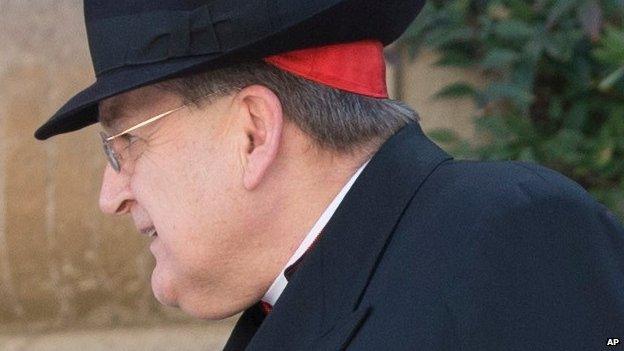
Cardinal Burke, a leading traditionalist, will not be at Synod
A leading traditionalist, the US Cardinal Raymond Burke, seen as the champion of the traditionalist camp last year, will not be there, while German Cardinal Walter Kasper and others on the progressive side will be.
However, African bishops may step into the role played by Cardinal Burke in asserting traditional teaching.
Some African bishops plan to re-affirm their traditional views on the family, and warn against LGBT activism in many parts of the world.
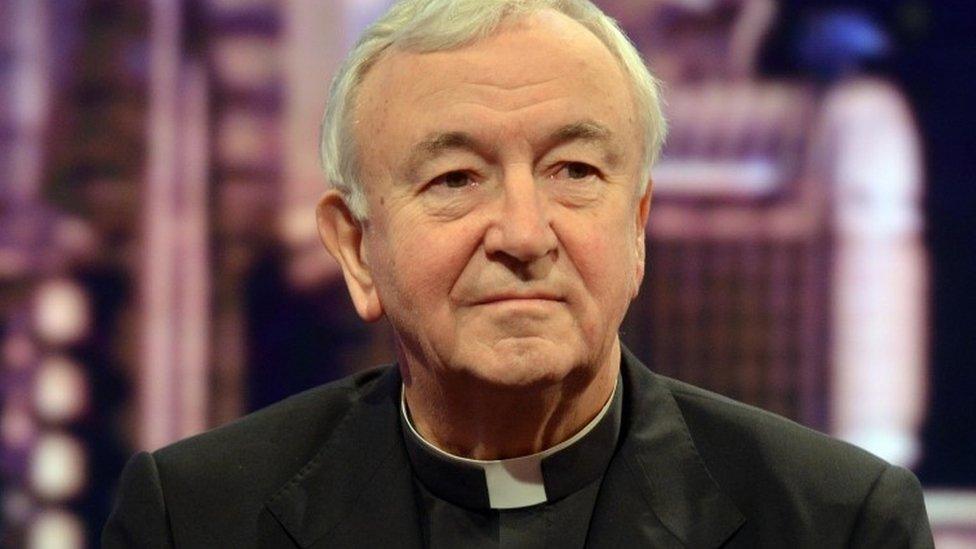
Cardinal Nichols says the Pope has a passionate way of expressing himself
Pope Francis is not necessarily saying anything new in the run-up to this gathering, according to English Cardinal Vincent Nichols, one of the voting delegates, "but he is saying things in a way and with a passion that says he would like to see the Church starting from a different place in its proclamation of the Gospel, and in how it helps people on their journeys."
He admits not every issue will see a meeting of minds.
"Some people say that when people form a family, let's take it as it is, and let's see if we can't help that family, whatever its shape.
"Other people look at it and see immediately what's wrong. So these tensions are there."
Risk of irrelevance
Others believe the most crucial issues facing families globally today are not sexuality or sexual mores, but the gap between rich and poor, the environment, as well as disability.
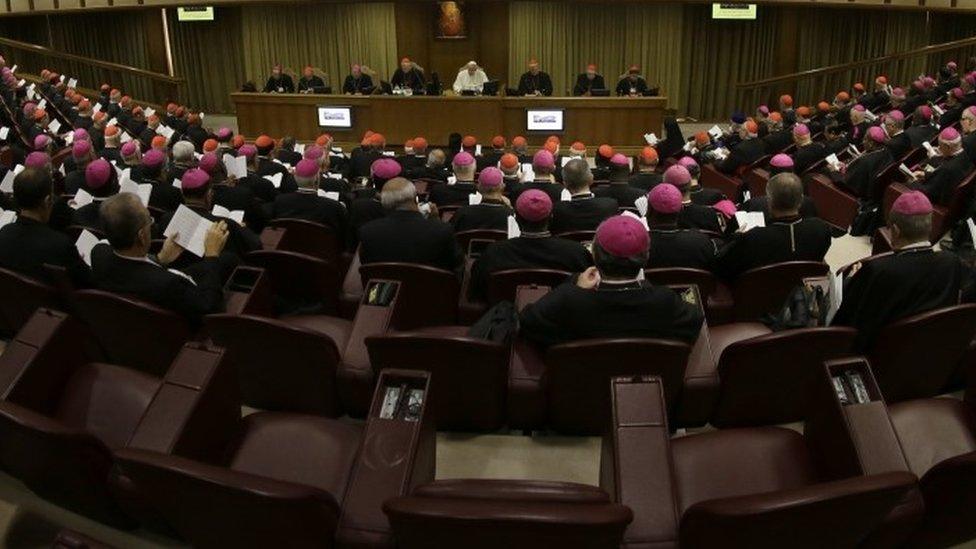
The Synod is expected to hear a wide range of views
The problem some see for the Catholic Church in much of the west is that its teachings banning artificial contraception and asserting the indissolubility of marriage are becoming increasingly irrelevant to many Catholics, and are often simply ignored.
And few parents in liberal western societies with gay children view their family members as 'intrinsically disordered'.
It may be impossible for Pope Francis to find a way ahead that satisfies all in this critical debate.
However, a Synod is not a democracy.
All it can do is discuss and put forward recommendations and a summary of its findings.
After that, it will be up to Pope Francis to weigh up the opinions expressed, and to write an "Apostolic Exhortation" to the entire Roman Catholic Church.
That may well not change doctrine, but some hope that in the 'Year of Mercy' starting this December, Pope Francis may wish to apply a more compassionate pastoral approach to those who do not live up to the Vatican's ideals on family life.
- Published22 September 2015
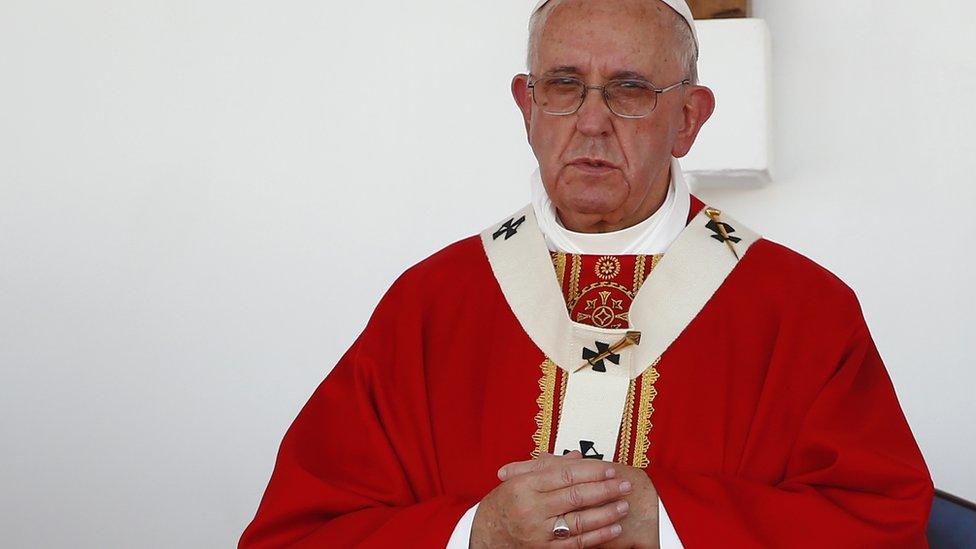
- Published28 October 2022
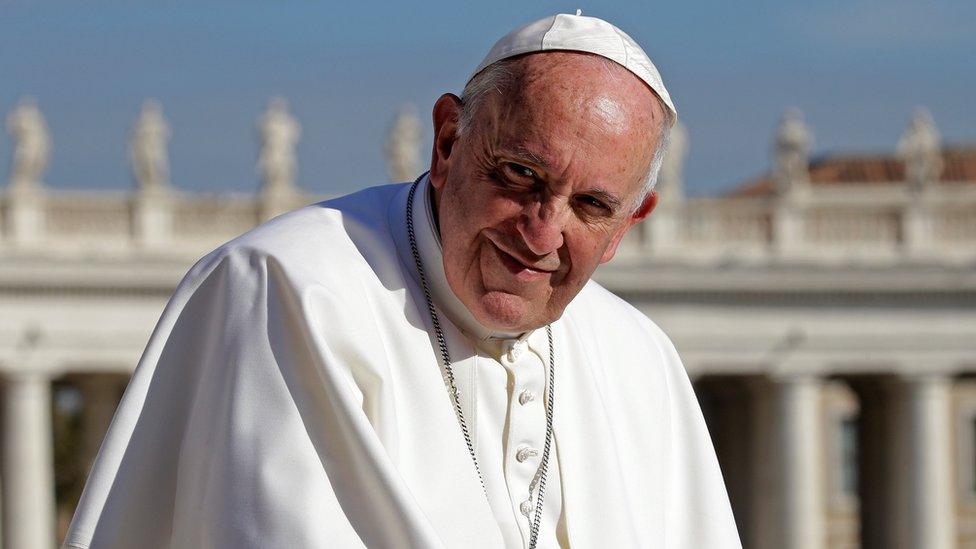
- Published19 March 2013
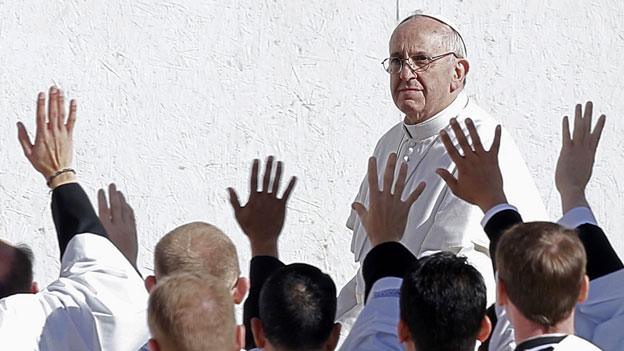
- Published17 November 2023
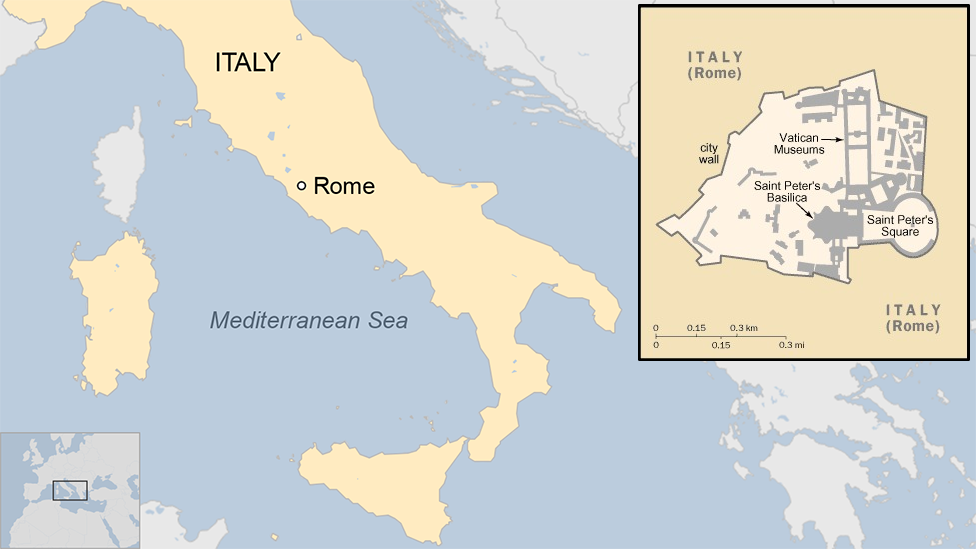
- Published14 March 2013
